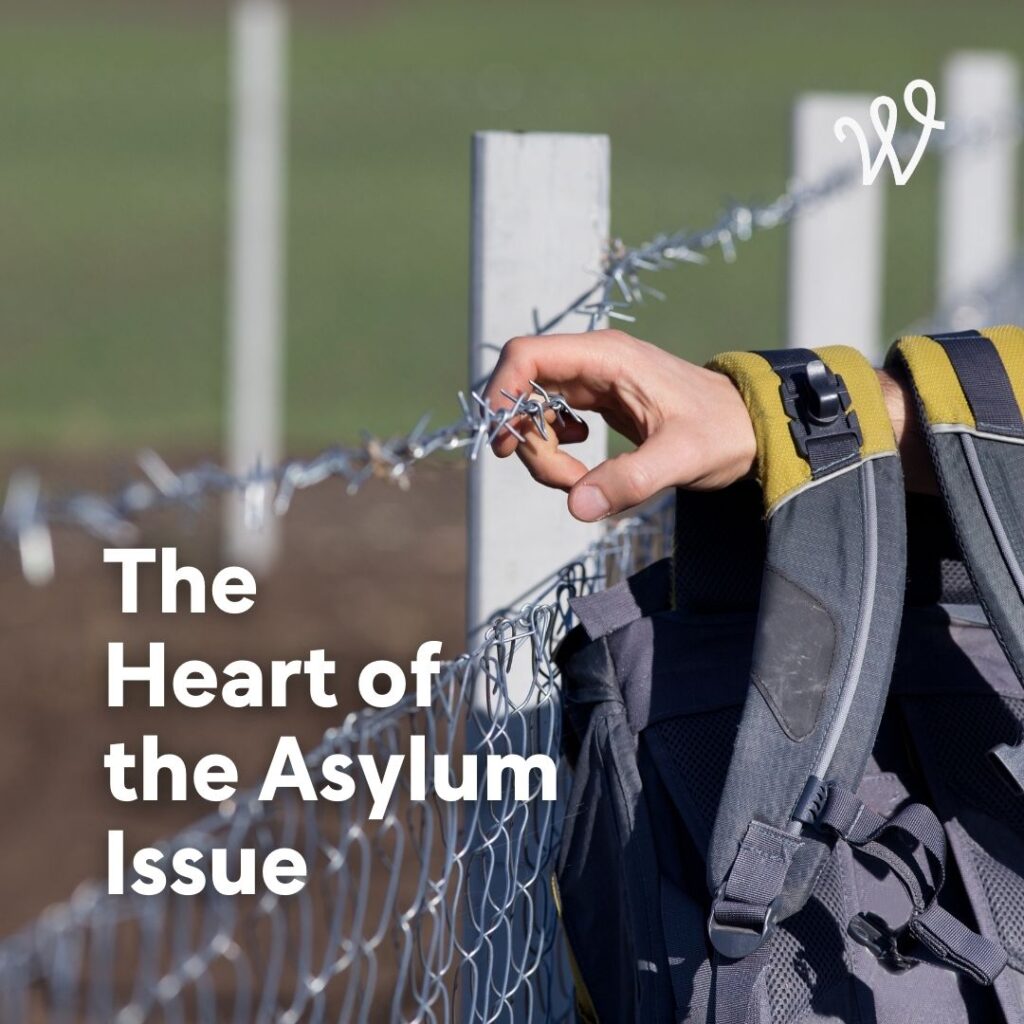The stories we hear on the news about what is happening at the southern border paint a certain picture. They make the issue of asylum sound black and white. We know it’s much more nuanced than that. It can be difficult to sort through all the rhetoric to get to the heart of the issue: people. Asylum seekers.
It’s important to know the facts—and we’ve included some important information here about who qualifies for asylum and what the process of applying looks like. You can read even more in our Common Questions section.
But we also know facts are easy to ignore when there isn’t a face to them. We want to share some stories with you of asylum seekers and asylees (someone whose asylum claim has been granted) in our community.
Paul
Cara shared the story with us of her late husband, Paul, an asylee from Cameroon.“His story showcases why someone would leave their home. It speaks to the reality of really hard things,” she said. Hear the heartbreaking story of why Paul needed to flee Cameroon, and the welcome he found as an asylee in the U.S.
Alex
Alex was an asylum seeker living in a camp in Mexico when he connected with a woman in our community. Several Women of Welcome connected with Alex and his daughter to help them settle in the U.S. as he prepared his asylum claim. Read their incredible story of welcome.
Now that you’ve met Paul and Alex, learn more about who asylum seekers are and how complicated the process of seeking asylum in the U.S. can be. Dive deeper in our stories over on Instagram to learn even more.
Who are Asylum Seekers?
Asylum seeker: Someone who has fled his or her home country and, upon arrival in the country where they hope to be allowed to stay, professes a fear of persecution in their country of origin on account of specific factors such as their nationality, race, religion, membership in a particular social group, or political opinion — but whose refugee status hasn’t been legally adjudicated yet.
Ok, but what is the specific difference between a refugee and an asylum seeker?
In our U.S. context, a refugee is someone who has demonstrated before reaching the United States that he or she left home because of a credible fear of persecution on account of his or her nationality, race, religion, political opinion, or membership in a particular social group. Historically, the U.S. has enjoyed bipartisan support for a robust refugee resettlement program. That said, our government accepts only a fraction of the tens of millions of refugees globally. The vetting of those refugees that come here to be resettled happens while the individual or family is still outside of the United States.
An asylum seeker is someone who has already made their way to U.S. soil, and once here, claims that they meet the definition of a refugee. Once someone makes an asylum claim, they have the right under U.S. law to have their case considered by the U.S. government, which is responsible for determining if they have the evidence necessary to prove their eligibility for protection.
Generally, the U.S. government will decide on a case-by-case basis whether to hold the person in immigration detention while their case is decided, or whether to allow them to stay with a ‘sponsor’, such as a family member, friend or even a church that is in the U.S., as they await their court date. In recent years, however, a series of policy changes have restricted some individuals from seeking asylum.
Who qualifies for asylum in the U.S.?
Under U.S. law, anyone who reaches United States soil has the right to request asylum, but that does not mean all will qualify. You have a right to request asylum whether you entered at a legal port of entry, or in between ports of entry. An asylum seeker must demonstrate that he or she has a well-founded fear of persecution because of their race, religion, political opinion, nationality, or membership in a particular social group. The burden of proof that their fear is indeed well-founded is on the individual or family requesting asylum. Unfortunately, some people who do meet these categories simply don’t have documentation to establish their case.
Fleeing poverty or violence not associated with one of the above categories does not make you eligible for asylum, and someone who tried to apply for those reasons would not be allowed to stay in the United States. (There are some rare, non-asylum related exceptions for some victims of torture.)

 This resource answers the most common questions Christians have about immigration and equips you to engage conversations with biblical clarity, truth, and grace.
This resource answers the most common questions Christians have about immigration and equips you to engage conversations with biblical clarity, truth, and grace.